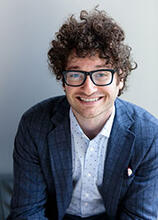“Ownership, Learning, and Beliefs,” Alex Imas, University of Chicago

BEHAVIORAL SCIENCES WORKSHOP
Abstract: We examine how owning a good affects learning and beliefs about its quality. We show that people have more extreme reactions to information about a good that they own compared to the same information about a non-owned good: ownership causes more optimistic beliefs after receiving a positive signal and more pessimistic beliefs after receiving a negative signal. Comparing learning to normative benchmarks reveals that people over-extrapolate from signals about goods that they own, which leads to an overreaction to information; in contrast, learning is close to Bayesian for non-owned goods. We provide direct evidence that this effect is driven by ownership channeling greater attention towards associated information, which leads people to overweight recent signals when forming beliefs. The relationship between ownership and beliefs has testable implications for trade and market expectations. In line with these predictions, we show that the endowment effect doubles in response to positive information and disappears with negative information, and demonstrate a significant relationship between ownership and over-extrapolation in survey data about stock market expectations.
Alex Imas is an Assistant Professor of Behavioral Science at the University of Chicago Booth School of Business, where he has taught Negotiations and Behavioral Economics. Previously, he was the William S. Dietrich II Assistant Professor of Behavioral Economics at Carnegie Mellon University, where he taught Behavioral Economics and Human Judgment and Decision Making. Imas’ research spans a variety of topics across economics and psychology. He has explored the role of incorrect beliefs in discrimination, the prevalence of behavioral biases amongst expert and non-expert investors, and how to better motivate performance by incorporating psychology into incentives. His research has been published in the American Economic Review, Proceedings of the National Academy of Sciences, and Management Science, among others.
This virtual workshop is open to the Yale community only. To receive Zoom information, you must subscribe to the Behavioral Science Workshop at this link: https://csap.yale.edu/behavioral-sciences-workshop.
Cosponsored by the Center for the Study of American Politics (CSAP) and the School of Management’s International Center for Finance and the Lynne & Andrew Redleaf Foundation.